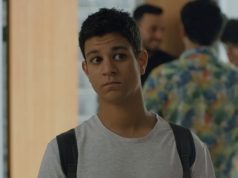Independent, Art House, & Foreign Films find a home in Egypt
By Francesca Sullivan
It’s taken a while, but at last Cairo has its own true art-house cinema: Zawya. In a small street behind the Odeon Downtown, lovers of independent films can now be seen any evening, gathering at an outdoor café more often frequented by local mechanics, or enjoying vegetarian snacks at the bar inside, before heading into the auditorium to watch the latest screening. Following on from the success of the Panorama of the European Film, an annual week-long event which has been bringing European auteur films to Egyptian screens for a decade, Zawya’s aim is to maintain a base for the showing of independent cinema all year round. It also has an educational role, and plans to expand to other cities across Egypt.
The driving force behind Zawya is cinema veteran Marianne Khoury, a producer, award-winning filmmaker and president of the Panorama, whose efforts have been instrumental in promoting and providing a home for art house cinema in Egypt. Khoury comes from a cinema pedigree, being the daughter of one of Egypt’s big producers of the ‘golden age’ during the 1950’s, Jean Khoury, and the niece of famed director Youssef Chahine. Cairo East Magazine met with Khoury to learn more.
CEM: How did you enter the world of cinema?
MK: Even though I come from a family with a 60 year history of involvement in cinema, I never thought I was destined to work in this business. But after my father died in 1982, my uncle Youssef Chahine gave me the opportunity to be executive producer on his movie Adieu Bonaparte. I was very young at the time and it was a great challenge for me. I was kind of thrown in at the deep end, but his trust in me gave me the confidence to take it on.
Since I’d studied economics it felt natural to me to go into the production side; I began to understand how to translate a film into figures. I went on to produce a number of films, but I have also been a documentary film-maker myself. I have always had an interest in the human aspect of politics, and film was a good medium through which to explore this.
For me cinema is not just about making films, it’s about producing, distributing, showing and watching, meeting other film makers and being involved with other movie lovers.
What inspired you to start Zawya?
Wanting to share my love of cinema. Nowadays young people can download just about anything from the web, but what’s available on the big screen is just mainstream Hollywood. It is wrongly manipulative not to give people choices, and I see it as my duty, a mission, as someone who’s been educated in this field, to offer those opportunities.
The idea behind Zawya is not new, but it has materialized partly as a result of the 2011 revolution and subsequent events. Young people have become more motivated and rebellious, willing to reject available cinema and create something different, and it is almost all hardworking young people who have helped to make Zawya a reality.
We managed to persuade the Odeon to give us one of their screens, which has an entrance at the back, hence we’ve been able to create our own foyer and give Zawya a different atmosphere from the main cinema area.
How have you gone about promoting Zawya?
We don’t have a big advertising budget, so eighty percent of our promotional campaign is through social media and networking. We have an active Facebook page which we update all the time, and a core team of workers whose job it is to stay on top of promotion.
Which backers did you manage to get on board for Zawya, and how?
The CIB is our main backer. They are my bank and I went to ask them if they’d get involved – we convinced them and they said yes! Of course New Century, owners of the Odeon chain, are instrumental in letting us have their property. We are also backed by UniFrance Films and Wallonie Bruxelles, who are respectively promoters of French and Belgian films.
How do you select the films to be shown?
We check on what’s going on world-wide in film festivals, workshops and other events. A lot of our networking involves trying to persuade distribution companies that we can be of interest to them. The films we would like to show are not always available or within our budget, and we also have the issue of subtitles. We can usually only take films that already have them, as arranging subtitles ourselves is a costly process. But we also take short films, and Egyptian films that are not mainstream. Our most successful title to date has been Coming Forth by Day, an Egyptian art-house film that didn’t do well in normal cinemas, but we have the audience for it.
Can you tell us about your expansion plans?
Our idea is not just to have one outlet; we are branding the idea so that other cinemas can show films ‘brought to you by Zawya’. This is already happening in other cities. In Alex we’ve just made an agreement with one cinema owner that we’ll take the 6.30 slot every Sunday, in order to create a model that local people get familiar with.
We do more than just show films, we are also a space where people can learn more about cinema, and regularly hold workshops and master classes to do with film making. Some film lecturers from the cinema institute have begun holding their seminars at Zawya, and we have visiting lecturers also.
There are lots of initiatives, and what is starting to happen now is that people are actually approaching us to create events, or to bring Zawya to them in some form – but we would prefer to encourage people to come to our premises!
What has been the public and critical reaction to the films?
Our opening was like an explosion; critics were thrilled that there was a permanent home for independent cinema at last. For the public, we are building our audience levels slowly, with a good average attendance – better than we expected in fact. I feel that the location, with the outdoor café and the sense of being part of the local atmosphere, has helped in that. There’s a really relaxed, friendly ambience.
What’s behind your ‘reasonable price’ policy?
Very simply the idea that cinema should not be thought of as a luxury, but an important and available part of life and education.






Comments are closed.